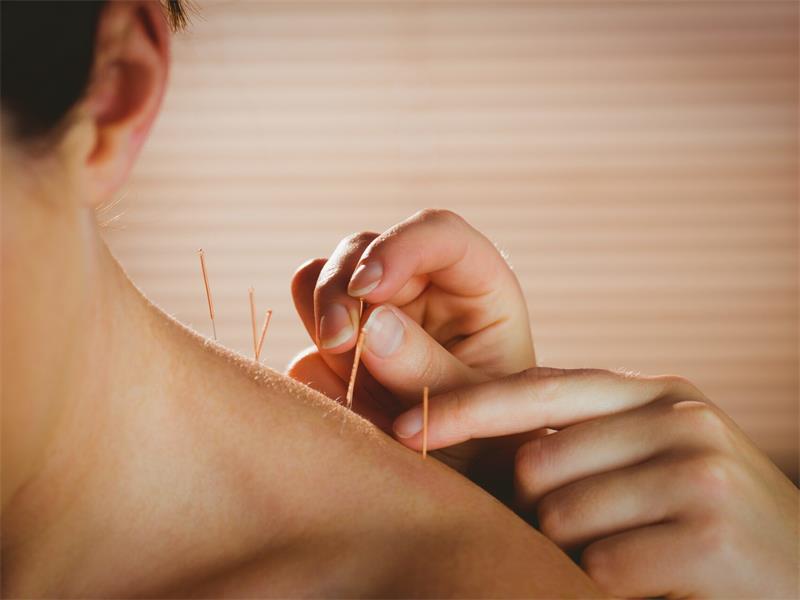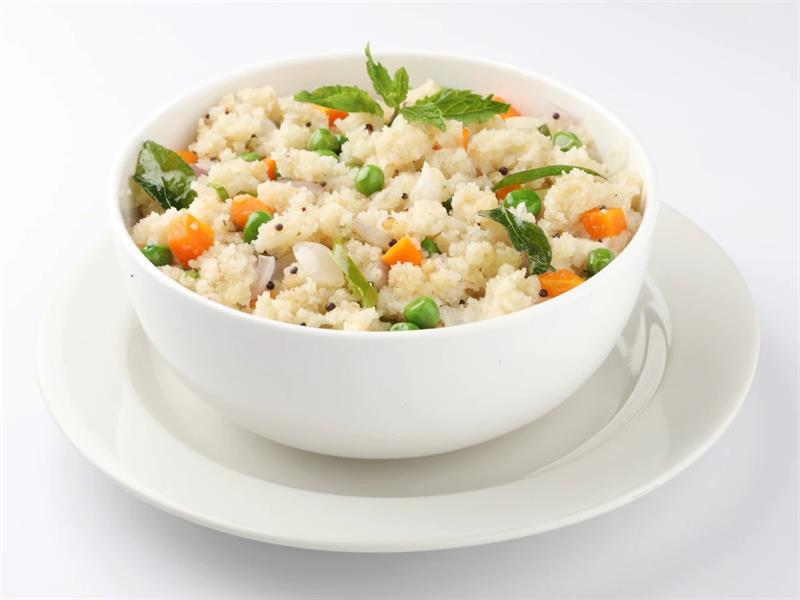Contents
- 1 An Introduction to Acupuncture
- 2 The Popularity of Acupuncture in Western Medicine
- 3 What is Acupuncture?
- 4 The Science Behind Acupuncture
- 5 The Selection of Acupuncture Points
- 6 How Acupuncture Affects the Body
- 7 Pain Relief
- 8 Stress Relief
- 9 Digestive Health
- 10 Women’s Health
- 11 Immune System Support
- 12 Potential Risks and Side Effects
- 13 Conclusion
An Introduction to Acupuncture
Acupuncture is a form of traditional Chinese medicine that has been practiced for thousands of years. It involves the insertion of thin needles into specific points on the body to stimulate and balance the flow of energy, or “Qi.” In recent years, acupuncture has gained popularity in the Western world as a complementary alternative therapy for a variety of health conditions.
At its core, acupuncture is based on the concept that illness and pain are caused by imbalances or blockages in the body’s energy flow. By stimulating specific points on the body with needles, acupuncturists aim to restore balance and promote healing.
Despite its ancient roots, acupuncture has become increasingly popular in modern times. In fact, according to a recent survey by the National Center for Complementary and Integrative Health (NCCIH), more than 14 million Americans have tried acupuncture at least once.
The Popularity of Acupuncture in Western Medicine
One reason for this growing popularity is that many people are seeking more natural and holistic approaches to healthcare. While traditional Western medicine often focuses on treating symptoms with medications or surgeries, acupuncture aims to address underlying imbalances in the body that may be contributing to those symptoms. In addition, acupuncture is generally considered safe and non-invasive when performed by a trained practitioner using sterile needles.
This makes it an attractive option for people who are wary of more aggressive medical treatments. Research has shown that acupuncture can be effective for a wide range of conditions including chronic pain, headaches/migraines, anxiety/depression, digestive issues and more.
As such, many medical professionals are now incorporating acupuncture into their treatment plans as complementary therapy alongside other conventional treatments. Overall, if you’re looking to explore alternative therapies or simply want a new approach to your healthcare routine – acupuncture may be worth checking out.
What is Acupuncture?
Acupuncture is a type of traditional Chinese medicine that has been practiced for over 5,000 years. It involves the insertion of thin needles into specific points on the body in order to balance the flow of energy, or Qi (pronounced “chee”), throughout the body.
According to traditional Chinese medicine, when Qi becomes blocked or unbalanced, it can lead to pain or illness. Acupuncture aims to restore balance and promote healing by stimulating these specific acupuncture points in the body.
History and Origins of Acupuncture
The origins of acupuncture are rooted in ancient China. It is believed that acupuncture was first developed during the Stone Age when sharp stones were used to relieve pain and illness. Over time, this practice evolved into using sharpened bones and eventually metal needles.
During the Han Dynasty (206 BCE – 220 CE), acupuncture became more standardized and was recognized as an official medical practice in China. The earliest known written record on acupuncture dates back to this time; a book called “The Yellow Emperor’s Classic of Internal Medicine” discussed various techniques for stimulating acupuncture points.
Acupuncture spread throughout Asia and eventually made its way to Europe during the 17th century. In recent years, it has become increasingly popular in Western countries as well, with many people seeking out acupuncture as a complementary or alternative form of medicine due to its non-invasive nature and potential benefits for various health conditions.
The Science Behind Acupuncture
Acupuncture is a traditional Chinese medicine practice that involves the insertion of thin needles into specific points on the body. But how does it actually work?
According to traditional Chinese medicine, acupuncture works by balancing the flow of Qi, or energy, throughout the body. Qi flows along pathways called meridians, and when these pathways become blocked or disrupted, it can lead to pain or illness.
When an acupuncturist selects points for treatment, they are choosing areas where the flow of Qi has been disrupted. These points are located all over the body and are often located near nerve endings or muscle tissue.
Once the needles are inserted at these points, they stimulate nerve fibers and send signals to the brain to release endorphins – natural painkillers that help reduce inflammation and promote healing. In addition to stimulating endorphins, acupuncture can also affect other systems in the body.
Studies have shown that acupuncture can activate certain areas of the brain associated with pain perception and emotional regulation. This means that acupuncture may be helpful for conditions such as anxiety and depression as well as physical pain.
The Selection of Acupuncture Points
Choosing which points to stimulate during an acupuncture treatment is a highly individualized process. The acupuncturist will take into account not only your symptoms but also your overall health history and constitution when selecting points for treatment.
There are over 400 acupuncture points on the body, each with its own unique function. Some points may be chosen for their ability to reduce inflammation while others may be selected because they help regulate hormones or improve digestion.
During a typical acupuncture session, anywhere from 5-20 needles may be inserted at various depths depending on which points are being treated. While some people report feeling a slight pinch or pressure during needle insertion, most people find that acupuncture is relatively painless.
How Acupuncture Affects the Body
Acupuncture has been shown to have a wide range of effects on the body, including its ability to stimulate the nervous system and improve immune function. When needles are inserted into specific points on the body, it can trigger a cascade of physiological responses.
One of the primary ways that acupuncture works is by stimulating the release of endorphins – natural painkillers produced by the brain. Endorphins not only help reduce pain but also promote feelings of relaxation and well-being.
Acupuncture has also been shown to affect levels of neurotransmitters such as serotonin and dopamine – both of which play a role in mood regulation. This may be why acupuncture can be helpful for conditions such as anxiety and depression.
Acupuncture has been shown to have immunomodulatory effects – meaning it can help regulate immune function. This could potentially explain why acupuncture has been found to be effective for conditions such as allergies and autoimmune disorders.
Pain Relief
The Need for Pain Management
Pain is a constant in our lives that can be debilitating and overwhelming. Treatment options that don’t involve pharmaceuticals are limited, but acupuncture has been shown to provide relief for chronic pain sufferers.
Acupuncture stimulates the body’s nervous system, releasing endorphins which are natural painkillers. Additionally, there is evidence that acupuncture affects levels of hormones and neurotransmitters which impact pain.
Reducing Headaches and Migraines
Acupuncture can help alleviate the frequency and intensity of headaches and migraines. By stimulating pressure points with needles, circulation increases in the affected area reducing inflammation, tension, and pain. Research studies have shown that a series of acupuncture treatments can reduce headache frequency significantly by as much as 50%.
Mitigating Menstrual Cramps
Menstrual cramps can range from mild to severe discomfort or even debilitation each month for those who menstruate. Acupuncture provides natural relief to menstrual cramps by reducing inflammation and increasing blood flow in the pelvic region.
Stress Relief
The Impact of Stress on Our Lives
Stress affects our bodies in many ways including increased heart rate, high blood pressure, tension headaches or migraines, digestive issues such as irritable bowel syndrome (IBS), muscle tightness or pain, insomnia or other sleep disorders to name only a few ways it impacts us. Acupuncture is a natural way to help manage stress levels without the use of prescription medication with side effects.
Dealing with Anxiety/Depression Through Acupuncture
Acupuncture has been shown to improve symptoms associated with anxiety and depression through neurochemical pathways impacting serotonin levels in our bodies. Regular treatments may also improve sleep quality which is often impacted by mental health disorders.
Improving Sleep Quality
Chronic stress can lead to insomnia or other sleep disorders, making it even more challenging to manage daily stressors. Acupuncture helps promote relaxation and can improve sleep quality by reducing the frequency of arousals, increasing slow-wave sleep, and reducing spontaneous awakenings.
Digestive Health
The Impact of Digestive Issues on Our Wellness
Digestive issues such as IBS, acid reflux, constipation or diarrhea can be very difficult for people to manage. Acupuncture provides natural relief from these ailments by regulating digestive hormones such as gastrin and motilin while increasing blood flow to the digestive system promoting healing and relieving inflammation.
Improving IBS Symptoms
Acupuncture has been shown in research studies to help alleviate symptoms of IBS such as bloating, cramping, abdominal pain, constipation or diarrhea. By increasing blood flow to the digestive system and regulating the hormones involved in digestion acupuncture may be an effective treatment option for those suffering from IBS symptoms.
Alleviating Acid Reflux (GERD)
Acid reflux (GERD) is a common digestive issue that results from stomach acid flowing back into the esophagus causing discomfort and sometimes damage. Acupuncture has been shown to provide relief from these symptoms by reducing inflammation in the body while improving circulation leading ultimately to reduced GERD symptoms.
Women’s Health
Fertility Issues and Acupuncture
Acupuncture treatments may help improve fertility for those struggling with infertility issues. Regular treatments promote blood flow throughout reproductive organs while also regulating hormones associated with fertility such as luteinizing hormone (LH) and follicle-stimulating hormone (FSH).
Treating Irregular Periods
Acupuncture can help those who suffer from irregular periods by regulating hormone levels, particularly Follicle Stimulating Hormone (FSH) and Luteinizing Hormone (LH). By increasing circulation to the uterus and ovaries, acupuncture treatments may help improve reproductive health for women.
The Impact of Acupuncture on Menopause Symptoms
Menopause is a natural period of life for women that can be accompanied by uncomfortable symptoms such as hot flashes, mood swings, and weight gain. Regular acupuncture treatments have been shown to reduce the frequency and intensity of these symptoms by reducing inflammation in the body while regulating hormonal changes associated with menopause.
Immune System Support
Strengthening Your Immune System
Acupuncture has been shown to help strengthen the immune system function by increasing the production of white blood cells which are responsible for fighting off viruses and bacteria. Additionally, regular acupuncture treatments can lead to improved circulation throughout the body leading ultimately to a healthier immune system overall.
Reducing the Incidence of Colds & Flu
Acupuncture has been shown to reduce inflammation in our bodies which allows our natural defenses against colds and flu viruses to take over without being attacked from elsewhere in our bodies. By receiving regular acupuncture treatments as part of their wellness routine, people may be less likely to get sick during cold & flu season.
Potential Risks and Side Effects
Are There Any Risks Associated with Acupuncture?
Like any medical treatment, there are some risks associated with acupuncture. The most common side effects of acupuncture are minor bleeding, bruising, or soreness at the site where the needles were inserted. However, more serious risks can occur if proper sterilization procedures are not followed.
This can lead to infections or even hepatitis and HIV transmission. There have been reports of punctured organs or nerve damage during acupuncture treatments as well.
These risks are rare, but they do exist. It’s important to choose a licensed practitioner who has been trained in proper needle placement techniques and sterilization protocols to minimize these risks.
Proper Needle Placement is Key
One of the most important factors in preventing risks associated with acupuncture is proper needle placement. Needles should be inserted only into specific points on the body that have been identified as safe by traditional Chinese medicine practitioners.
Improper needle placement can cause injury to nearby organs or nerves. It’s recommended that you choose a licensed acupuncturist who has undergone extensive training in both needle technique and safety protocols to avoid any potential complications.
The Importance of Sterilization Procedures
Another risk factor associated with acupuncture is improper sterilization procedures. Reusing needles or using unsterilized needles can cause infections such as hepatitis B, hepatitis C, or even HIV transmission.
To prevent this from happening, it’s important that your acupuncturist uses sterile needles for each patient and disposes of them properly after each use. You should never hesitate to ask about their sterilization procedures before undergoing an acupuncture treatment.
Overall, while there are some risks associated with acupuncture, they can be minimized by choosing a licensed practitioner who follows proper safety protocols for both needle technique and sterilization procedures. With the right precautions in place, acupuncture can be a safe and effective treatment option for a variety of health concerns.
Conclusion
Acupuncture is an ancient practice that has been used to treat a wide range of health issues for centuries. Today, millions of people around the world rely on acupuncture as a natural and effective way to relieve pain, reduce stress levels, boost their immune system, and improve their overall quality of life.
Throughout this article, we’ve explored how acupuncture works and the numerous benefits it offers. From pain relief to stress reduction, digestive health improvement to immune system support – acupuncture has been shown to be an effective treatment for many common ailments.
If you’re considering trying acupuncture as part of your health journey, it’s important to find a qualified and experienced practitioner who can help you get the most out of each session. You may need several treatments before you start noticing significant improvements in your health.
Overall, acupuncture is a safe and natural way to promote healing and wellness in your body. With its long history and growing popularity in the Western world, there’s never been a better time to try this ancient practice for yourself!













